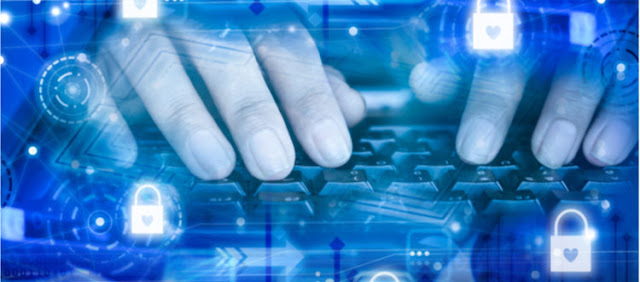Obtaining the Computer Hacking Forensic Investigator certification enables professionals to acquire expertise and understanding in particular security areas of computer forensics, such as Password Cracking Concepts, log capturing tools, wireless attacks, network traffic, Access Data FTK, and numerous other related topics.
Why Is EC-Council CHFI in Such High Demand?
The CHFI certification is granted by EC-Council, also recognized as the International Council of E-Commerce Consultants. It's a comprehensive and thorough certification program that equips experts with the skills to identify and respond to hacker attacks using a variety of evidence-gathering techniques, reporting the crime, performing audits, and implementing necessary measures to prevent future attacks.
After obtaining the EC-Council Computer Hacking Forensics Investigator certification, professionals acquire additional qualifications as they are capable of fulfilling the diverse standards of CNSS 4011-4016 Federal Security Certification Training. Consequently, companies are willing to provide attractive remuneration packages to qualified candidates.
CHFI Certification Salary
Professionals with EC-Council CHFI certification can expect to earn an annual salary between $85,000 and $120,000 on average.
Individuals with over five years of experience in managing challenging projects and working in the same industry can anticipate receiving higher salary packages. The remuneration not only depends on their experience but also on the type of employer and their specific skills or expertise.
Companies are looking for individuals who hold a CHFI certification to manage diverse areas of cybersecurity, which include conducting investigations on cybercrime, assessing digital evidence, securing and analyzing electronic crime scenes, retrieving erased files, utilizing techniques such as Steganalysis, managing logs, and investigating email-related crimes.
Positions Available for EC-Council CHFI Certified Professionals
Starting roles for individuals with CHFI certification consist of positions such as information security analyst and forensic computer analyst, both with an average minimum salary of $53,717 and $37,340, respectively.
Intermediate and advanced level job positions consist of Security Engineer, Information Security Engineer, and IT Director.
What Distinguishes CHFI From Other Cybersecurity Certifications
EC-Council CHFI certification primarily focuses on analytical methods, forensic tools, and different procedures utilized in detecting, safeguarding, preserving, and analyzing computer forensic evidence. The fundamental objective is to equip certified professionals with the ability to implement various computer investigation and analysis techniques to identify potential legal evidence.
The CHFI certification program has received accreditation from the Committee on National Security Systems (CNSS) and the National Security Agency (NSA). Additionally, the National Infocomm Competency Framework (NICF) recognizes the certification as a requirement for professional competency.
As the internet remains an integral part of society and cybercrime continues to increase, CHFI certification provides numerous opportunities for professionals. With cybersecurity becoming a growing concern for organizations worldwide, individuals with Computer Hacking Forensic Investigator certification can anticipate a future of career growth and advancement.
Related Read: CHFI Certification Value: Why You Need the Certification?
Who Can Benefit From Acquiring CHFI Certification?
The group of professionals who should pursue CHFI certification includes:
Looking for CHFI Certification?
To earn CHFI certification, passing the CHFI exam is a requirement, which assesses knowledge in areas such as gathering, analyzing, and presenting digital evidence; computer and network forensics; investigating cybercrime; and understanding legal aspects related to forensics.
Prior to attempting the CHFI exam, you shoud meet CHFI certification requirements. It is advisable to have a minimum of two years of experience in information security or a related field. Additionally, familiarity with digital forensics tools and techniques is also suggested.
To get ready for the CHFI exam, you can enroll in a CHFI training course, which can be done either in person or online. EC-Council provides authorized CHFI training courses, along with several other resources like study guides and practice exams, to aid in exam preparation.
After successfully passing the CHFI exam, you will obtain the Computer Hacking Forensic Investigator certification that remains valid for three years. To sustain your certification, you need to either earn continuing education credits or retake the CHFI exam before the expiration date.
Join the ranks of Computer Hacking Forensic Investigators – start your journey now!
















